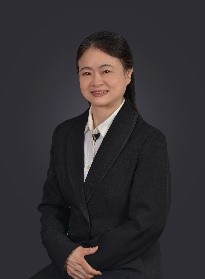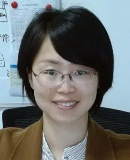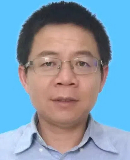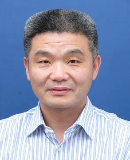BIBE-IWMH' 24: Intelligent Wearable and Medical Health
Long term and dynamic monitoring can capture transient and non-sustained abnormal changes of physiological signals such as electrocardiogram, electroencephalogram, blood pressure, etc. It is crucial for identifying health status and preventing the occurrence of sudden fatal risks. This session aims to promote the deep cross integration of multiple cutting-edge fields on wearable technology, integrated circuit,signal processing, AI and smart healthcare, promote innovation and cooperation in healthcare industry, academia, and research, and finally establish a new mode for monitoring and diagnosing health status.
BIBE-IWMH' 24 topics include but are not limited to:
1.Flexible and fabric electrode technology
2.Wearable medical sensor components
3.Biomedical signal processing
4.Wearable-sensor-based medical big data and artificial intelligence
5.Wearable sensor+AI and disease monitoring
6.Wearable sensor+AI and complex disease rehabilitation
7.Wearable sensor and modernization of traditional chinese medicine
BIBE-IWMH' 24 organizer/session chair

Nini Rao
Professor Nini Rao received her B.A., M.S. and Ph.D. degrees from University of Electronic Science and Technology of China (UESTC), Chengdu, China, in 1983, 1989, and 2009 respectively. Since 1989, she has been engaged in teaching and research in UESTC, during which, she made academic visiting at University of Bradford in UK, National University of Singapore and University of Georgia in USA and Harvard Medical School/Massachusetts General Hospital in 1997-1998, 2006, 2008 and 2016 respectively. Prof. Rao was honored with the expert obtaining the special allowance of State Council, academic and technical leader in Sichuan province and outstanding expert with outstanding contribution to Sichuan province in 2024, 2021 and 2005 respectively. She received more than 30 research grants and published more than 170 papers, and acquired a third-class prize of progress of science and technology of Sichuan Province in 2012. Her current research interests include Biomedical sensors and signal/image processing and Bioinformatics.
Committee Member

Xiaorong Ding
Currently an associate professor at the School of Life Science and Technology, University of Electronic Science and Technology of China (UESTC). Her research interests lie in wearable health monitoring, biomedical signal processing, and smart healthcare. She obtained her PhD degree in Biomedical Engineering from Department of Electronic Engineering at the Chinese University of Hong Kong (CUHK) in 2016. Before she joined UESTC in 2020, she did postdoc research at CUHK for one year and then at University of Oxford for three years, with research work on developing intelligent systems that can monitor patient condition at home and help patients manage long-term conditions. She is associate editor for multiple international journals including Biomedical Signal Processing and Control, Springer Nature Computer Science, and Frontiers in Medicine and Public Health, and the secretary of IEEE Engineering in Medicine and Biology Society (EMBS) Standard Association.

Xu Lisheng
A long term professor of Northeastern University, Bo-director, Chairman of the Theory and Education Committee of China Medical Information Society, Vice Chairman of Diagnostic Information Branch of China Chinese Medicine Information Research Association, Senior Member of IEEE, Vice Chairman of Biomedical Measurement Branch of China Biomedical Engineering Society, Member of the Sixth Liaoning Provincial Discipline Evaluation Group, Expert in the evaluation of awards of the Ministry of Science and Technology of the PRC and the Ministry of Education of the PRC, Expert in the evaluation of the National Natural Science Foundation of the PRC. He is also an expert in the evaluation of the National Natural Science Foundation of China (NSFC). He is an associate editor of the international journals Biomedical Signal Processing and Control, Frontiers in Physiology and Scientific Reports, and an editorial board member of Computers in Biology and Medicine, Physiol Meas, BME Online, etc. He is also a member of the editorial board of the Chinese Society of Biomedical Engineering. He is a member of the editorial board of Computers in Biology and Medicine, Physiol Meas, BME Online, etc. He has been responsible for and participated in 27 projects under the National Key Research and Development Programme, the National Natural Science Foundation of China, and the Hong Kong Government Foundation. He has published more than 210 papers, including more than 120 papers in SCI journals such as Advanced Science, Information Fusion, IEEE Trans, and 2 monographs in English and Chinese, and has been granted 27 invention patents. He was awarded the first prize of Liaoning Provincial Scientific and Technological Progress, and his main research direction is the intelligent non-invasive diagnosis and treatment of cardiovascular system based on multimodal data.

Professor Steve Greenwald
Queen Mary University of London
Bio: Following a BA in Natural Science at Hertford College Oxford and a PhD in Medicine (Pathology) from Guy's Hospital Medical School, Steve Greenwald obtained a British Heart Foundation Junior Research Fellowship working on arterial elasticity in children. This was followed by a position as research assistant in the Pathology Department of The London Hospital Medical College, later part of Queen Mary University of London. He obtained a personal chair in Cardiovascular Mechanics in 2001 and was elected Vice President of the International Society of Pathophysiology in 2006, subsequently having held visiting professorships in Thailand and China. His research interests include arterial structure, mechanical properties and wave propagation and their role in the pathogenesis of vascular disease. On the applied side, real time measurement of physiological signals and the clinical evaluation of these measurement systems. As part of the CARDIS consortium, funded by an EU Horizon 2020 grant, work has focussed on assessing the sensitivity and accuracy of laser Doppler vibrometry for the non-contact measurement of arterial stiffness and the detection of carotid artery stenosis. Earlier work on shear wave propagation in chest phantoms has led to the development of stick-on patch to detect coronary artery disease from its “acoustic signature”. This work is a collaboration with electronic engineers at Imperial College, mathematicians at Brunel University and clinicians at The Barts Heart Centre in London. A prototype patch is undergoing in-vitro testing, and a clinical validation study is planned for 2025.

Prof. Dr.-Ing Gangmin Ning
Zhejiang University
Bio: Prof. Dr.-Ing Gangmin Ning earned his Bachelor's and Master's degrees in Biomedical Engineering from Zhejiang University, China, and the Doctor of Engineering (Dr.-Ing) in Biomedical Engineering from Ilmenau University of Technology, Germany. He currently holds the position of Professor in the Department of Biomedical Engineering at Zhejiang University, where he has also served as the Chairperson from 2009 to 2014. In addition to his primary role, he is a Visiting Professor at Charité Medicine Center, Germany and Guest Professor at Capital University of Physical Education and Sports, China.
He actively participates in professional societies, serving as the Vice Chairperson of the Microcirculation Society of China and as the Deputy Director of the Engineering Research Center for Electronic Medical Records and Intelligent Expert Systems, the Ministry of Education in China. He is a Senior Member of both the Institute of Electrical and Electronics Engineers (IEEE) and the Chinese Society of Biomedical Engineering.
His research is at the forefront of innovation, focusing on mathematical models for physiological systems, the integration of artificial intelligence in medicine, and the development of rehabilitation technologies tailored for the elderly. His contributions to the advancement of biomedical engineering and healthcare technologies have been recognized with accolades, including one First Prize and three Second Prizes of the Science and Technology Progress Awards from Zhejiang Province, China.